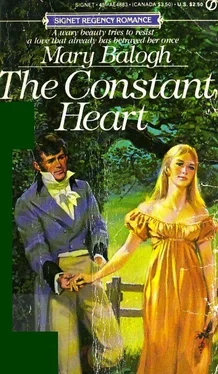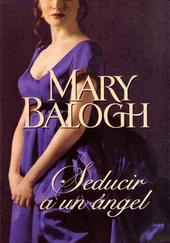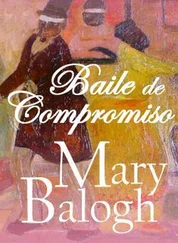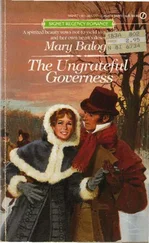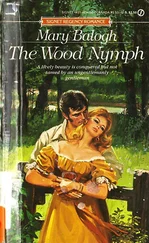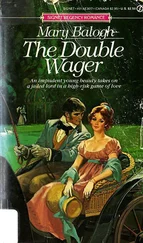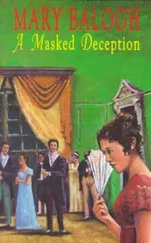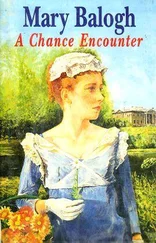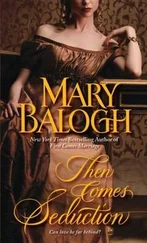Mary Balogh
The constant heart
"What I find most hurtful is their apparent lack of gratitude," the Reverend Philip Everett said. "It seems to me that the least they can do is be thankful for what we have done for them."
Rebecca Shaw smiled at him as she straightened the small pile of old books on the table in front of her. "You demand too much, Philip," she said placatingly. "You cannot really expect young boys to be grateful for being forced into a schoolroom to learn their letters when they might be out in the fields working with their fathers."
"Yet you and I have worked hard for more than a year to make all this possible," he said, gesturing vaguely at the room around them. He was standing squarely in front of the table, earnestly regarding his companion. "It seemed such a noble dream, Rebecca, to open a school for the village boys. Left to themselves, they would never have a chance for anything more in life than labor in the fields or perhaps employment in one of those dreadful new factories. We give them a chance of learning so that perhaps they can be employed as clerks at the very least. Do they not understand that?"
Rebecca rested her hands on top of the books and looked calmly at her betrothed. He had that crusading zeal in his eyes, the look that had always drawn her to him. It was there sometimes during his Sunday sermons, when he could transport his parishioners in spirit beyond the confines of their little world and all its humdrum activities and bring them closer to the meaning of it all. It was there when he had some fixed idea in his mind for service to mankind.
It was this zeal that still endeared him to Rebecca. Yet the purely feminine side of her nature had to admit she also took pleasure in his good looks. He was a tall young man, whose very upright bearing accentuated his height. He always dressed plainly in black. His only concession to vanity was the care he gave his thick blond hair, which was always clean and shining and which he always wore rather long. His complexion was fair and had a tendency to flush at the slightest emotion. He was flushed now.
"No," she said, "they probably do not understand, Philip. They are merely children. Most of them are incapable of looking to the future. All they know is that we are forcing them to sit in here when they could be outside helping in the fields or playing. Come, there is nothing so reprehensible in their attitude. We must have faith that what we are doing is right and will work out well in the end."
The Reverend Everett turned his head and looked around him. The building was not large-an oblong, single-roomed structure with whitewashed walls and dirt floor. Five rows of heavy wooden benches, nailed to the floor, filled much of the room. The roughly carpentered table behind which Rebecca stood occupied the remaining space. Small piles of books and papers were on the windowsills at the back of the room. A few watercolors, all apparently painted by the same hand of only limited talent, helped give the room a lived-in appearance.
He walked over to the doorway, from which the door had been pulled back to let in some fresh air, and gazed out to the bright world beyond. His hands were clasped behind him. "If the boys themselves cannot understand," he said, "at least I would expect their parents to do so. Do they not want something better for their children than what they have? Yet today you had only fourteen pupils. There should have been nineteen."
Rebecca crossed to his side. She put a hand on his sleeve and looked up into his face. "Have patience, Philip," she said. “The idea of having their sons educated is new to them. Many of them find it hard to believe that learning to read will help their children to a better way of life. You have to sympathize with their caution, you know. Life does not offer these people much in the way of variety or advancement. They must be almost afraid to hope."
"They will have no hope at all," he said, his arm unyielding beneath her touch, "if they will not at least send the boys to school."
"They will," she said, a smile on her face that he did not turn to see. "Let us give it time. We must not lose hope, at all events, Philip. We have overcome too many obstacles to give up now. The money was truly a gift from heaven."
"Yes," he agreed. "I should have thought sooner of that wealthy acquaintance of mine in London. He told me years ago that I must call on him if ever I felt in need of funds for a worthwhile project."
"I wish he could see the school," Rebecca said, looking with shining eyes back into the spartan little room. "It is not much, Philip, but to have a building of our own and even books and paper and charcoal still seems like a dream come true. What I find most touching about your patron is that he insists on remaining anonymous. So many times the rich are charitable only so that others may see and praise their generosity."
"I send reports to him regularly," the vicar said. "He is pleased with what we have done and are doing."
Rebecca squeezed his arm reassuringly before removing her hand and turning to take her bonnet and shawl from a hook on the wall behind the door. "I must be getting home," she said. "Maude will doubtless delay tea until I am there, and if I am late Harriet will be cross and make all our lives miserable for the rest of the day."
Philip frowned. "I do not like the thought of your living with your uncle," he said. "Miss Shaw is by far too willful. She is all I abhor in people of wealth and privilege. And Lady Holmes, I fear, is too young and too weak to control her stepdaughter."
"One can hardly expect otherwise," Rebecca said cheerfully, tying the bow of her straw bonnet beneath her chin. "Harriet has been used to being mistress at Limeglade since she was ten years old. It is difficult for her to adjust to the presence of a new mistress and stepmother-especially when Maude is only three years her senior. But there is nothing malicious about either of them. And Uncle Humphrey has always done his best to make me feel that I belong in his home."
"I still cannot like it," Philip said. "I shall be thankful when we can wed and I can remove you to my own home."
Rebecca smiled fleetingly in his direction and crossed to the table to take up her reticule. She did not know exactly what Philip was waiting for, but ever since their betrothal almost a year before, he had spoken with some longing about their forthcoming marriage as if some definite obstacle stood in the way. He was not by any means a wealthy man, but then with his calling he was never like to be. The living in which he was established was a good one. The parsonage, which stood next to the church, was comfortable if not lavish in its furnishings. He had a wealthy patron, who was apparently willing to aid him in any charitable scheme he favored. There seemed no bar, then, to their nuptials.
Yet no definite arrangements had been made. When she stopped to think about it, Rebecca considered it rather strange. After all, neither of them was very young. Philip had recently turned thirty; she was six-and-twenty. But she did not think of it very frequently. She was quite content with life as it was at present. When Philip decided that it was time for them to marry, she would be ready. But she had no intention of pressing the issue with him.
"I shall see you tomorrow, then, Philip?" she asked cheerfully when she reached the door again. "I shall walk over to the parsonage as soon after luncheon as I may. Visiting the sick always takes a full afternoon."
"Yes," he said, "and I am always grateful for your help, Rebecca. Good day to you."
She left him standing in the doorway as she crossed the road to the country lane that led in the direction of her uncle's home. It would have been a three-mile walk, but she always took a shortcut through the pasture. She much preferred to walk than to call out the gig, though Uncle Humphrey constantly upbraided her for not using his conveyances. She would ruin her complexion with all the fresh air and exercise, he warned.
Читать дальше
